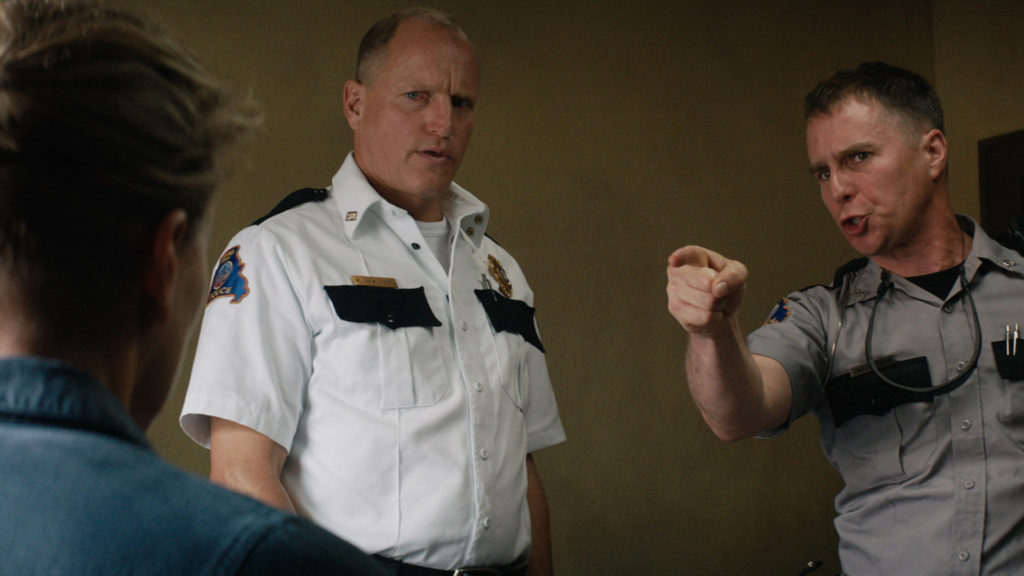Bitcoin has surged to its highest level in a month as global risk sentiment improves and Donald Trump signals renewed support for the crypto sector.
Three Billboards appropriates black and female struggles for the white man

Three Billboards Outside Ebbing, Missouri tells a universal tale of women abandoned by the justice system sworn to protect them. In South Africa, this story is all too common; a study by the South African Medical Research Council found that, in 2012, only 8% of rape cases reported to the police resulted in guilty verdicts. If that figure held until 2017, over 36 600 reported rape cases saw the accused walk free.
Our own President Jacob Zuma was accused of raping Fezekile Ntsukela Kuzwayo before his election. He was elected anyway, a sour piece of history echoed in the US’s election of President Donald Trump. A woman claimed Trump raped her when she was 13 years old. His ex-wife also accused him of forcing himself onto her. Trump avoided lawsuits, and eventually convinced half a nation to vote for him.
Three Billboards tries to tell the story of forgotten justice and police accountability
The story of forgotten justice is not only familiar to women, though. In the US last year, black people were 3 times more likely to be killed by police than white people, despite 30% of those shot and killed having been unarmed. The murder of Michael Brown, an unarmed 18-year-old, sparked protests in 2014 that ignited the Black Lives Matter movement, still forced to rage on nearly four years later.
Police around the world swear to protect their citizens — and yet the systems fail, time and again, and society’s most vulnerable is left to mourn the loss of lives and the lack of justice.
On its surface, Three Billboards seeks to tell this story. Writer and director Martin McDonagh presents the tale of a grieving mother, Mildred Hayes (Frances McDormand), whose teenage daughter was raped and murdered. Angered by the police’s slow response, Mildred erects three billboards outside town, asking the chief of police why he has made no arrests.
But as the film moves on, it becomes clear that the story is not about her or her daughter’s justice. Mildred begins the film angry and she ends the film angry. She is gifted no closure and she is offered no emotional arc. Instead, this honour goes to the two supporting white men, both of whom are members of the police.
The first is Chief Willoughby (Woody Harrelson), a father of two young girls who understands Mildred’s anger and is hesitant to punish her for it. But his sympathy is passive. Willoughby knows that his position as chief, as well as his struggle with cancer, will help him garner Ebbing’s support. Even when he knows his actions will inspire further anger towards Mildred, he chooses to let her suffer through.
Martin McDonagh’s Three Billboards favours the powerful and tortures the tortured
Three Billboards, though, treats Willoughby’s character delicately. McDonagh spends a lot of time focusing on the chief’s emotional state, his motivations, his loves, and his losses. All we know of Mildred’s character is in relation to her grief; of Willoughby we know how his work affected him, of his relationship with his family.
But even Willoughby isn’t offered the room McDonagh affords Dixon (Sam Rockwell), another officer. Dixon is a slow and violent cop who tortured a black man in custody prior to the events of the film.
Dixon is the only character in Three Billboards that finds a productive form of justice, taking the shape of redemption, forgiveness, and freedom from his twisted mother. Dixon, who threw a man out a window, punched a woman in the face, and who tortured a black man — this Dixon is the only character who finds relief.
Dixon, an officer who tortured a black man, is redeemed and finds closure
It’s difficult to imagine a film with Three Billboards‘ premise being treated in such a frustrating way if it had employed the writing talents of a woman or black American. Would Mildred Hayes have been reduced to her anger? Would black characters be relegated to minor roles that exist to serve a racist’s redemption? Most likely not.
And yet, in McDonagh’s film, they do. Mildred’s black friend Denise is used as a pawn and locked up for half the film to teach the grieving mother a lesson. Mildred herself is an instigator for Dixon’s redemption. Angela, whose brutal murder ignites the film’s action, is not once considered as a full human being. She is symbol of violence and nothing more.
McDonagh concludes that even when policemen neither serve nor protect, they deserve personal justice
In a way, McDonagh cheats the viewer: he invites them in to tackle the subject of police accountability, and concludes that even when they neither serve nor protect, they deserve personal justice on their own terms. Three Billboards humanises police to the detriment of the systemically underserved characters.
Had McDonagh allowed Mildred an emotional journey, or any of the black characters more than three lines, Three Billboards would feel well-rounded and truer to the human experience. Instead it feels tone deaf, lopsided, and in favour of the powerful.

